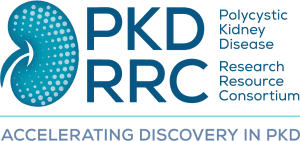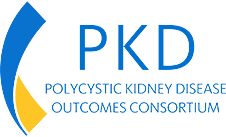The Polycystic Kidney Disease Research Resource Consortium (PKD RRC), funded by The National Institutes of Diabetes, Digestive and Kidney Diseases (NIDDK) goal is to support a collaborative, diverse community of investigators who are working to advance discovery in the area of polycystic kidney disease. We aim to help researchers achieve their PKD research goals by sharing, distributing, and developing innovative reagents and resources. We encourage you to browse our core services and resources and to reach out with questions here.

The Polycystic Kidney Disease Research Resource Consortium (PKD RRC), funded by The National Institutes of Diabetes, Digestive and Kidney Diseases (NIDDK) goal is to support a collaborative, diverse community of investigators who are working to advance discovery in the area of polycystic kidney disease. We aim to help researchers achieve their PKD research goals by sharing, distributing, and developing innovative reagents and resources. We encourage you to browse our core services and resources and to reach out with questions here.

The PKD RRC’s PKD Genome Browser serves as a repository of variants across the exomes and targeted panel sequencing of individuals with polycystic kidney disease (PKD). Our goal is to aggregate and harmonize exome and genome sequencing data from sequencing projects of PKD and to make summary data available to the wider scientific community. Check it out here.
The PKD Genome Browser is actively seeking additional cohorts to include in the aggregation efforts. If you want to contribute targeted sequencing, exome or genome data to the PKD Genome Browser, please contact the PKD RRC.
CRISP was established to develop and implement studies to test whether imaging techniques can provide accurate and reproducible markers of progression of renal disease in patients with ADPKD. The cohort study longitudinally observed ADPKD individuals using high-resolution magnetic resonance (MR) imaging to determine if change in renal and cyst volumes can be detected over time, and if they correlate with decline in renal function.
Find more details on CRISP and how to access study specimens and datasets here.
The PKDOC database consists of de-identified data from three longitudinal observational patient registries. The data have been standardized and aggregated into a common format using a Clinical Data Interchange Standards Consortium (CDISC) Standard Data Tabulation Model (SDTM) structure. This enables analyses to be performed on a larger expanded dataset. The data cover approximately seven decades of patient visits from 2,498 subjects in patient registries at the University of Colorado – Denver, Mayo Clinic and Emory University.
Find more details on PKDOC and how to access study datasets here.

The ADPKD Database (PKDB) has been established to facilitate the characterization of ADPKD variants in PKD1 and PKD2, the two major causative ADPKD genes. It has been set up as a repository of all variants in these genes, whether likely disease causing or not.
Find more details on PKDB and how to access mutation datasets here.

The Rare Disease Cures Accelerator-Data and Analytics Platform (RDCA-DAP®) is an FDA-funded initiative that provides a centralized and standardized infrastructure to support and accelerate rare disease characterization, with the goal of accelerating therapy development across rare diseases. RDCA-DAP promotes the sharing of existing patient-level data and encourages the standardization of new data collection. By integrating such data in a regulatory-grade format suitable for analytics, RDCA-DAP accelerates the understanding of disease progression (including sources of variability to optimize the characterization of subpopulations), clinical outcome measures and biomarkers, and facilitates the development of mathematical models of disease and innovative clinical trial designs.
Find more details on RDCA-DAP and how to access the platform here.
ADPKDsim is an educational resource with information on assessing the rate of ADPKD progression. Learn more.





